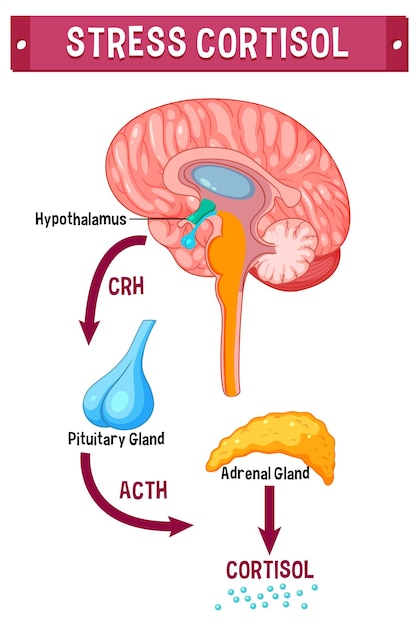Ronald Peters, MD, MPH
I want to share with you today an article written by Ronald Peters, MD, MPH which gives an overview of a mechanism in the body which is activated when there is a perceived threat which could be viral, bacterial, toxic chemicals and metals etc. called: “The Cell Danger Response”.
Practitioners are familiar with the typical protective reactions that get activated in these situations, however where problems can arise is when this activation is not turned off after the threat has disappeared. It is suggested that this can contribute to the development of chronic, degenerative disease processes.
This concept was originally hypothesized by Robert K. Naviaux in the published paper:
Metabolic features of the cell danger response, Robert K. Naviaux, Mitochondrion 16 (2014) 7–17 The Mitochondrial and Metabolic Disease Center, University of California, San Diego School of Medicine
It has started to gain a lot of traction within the Functional Medicine community and I would suggest it certainly warrants some consideration with respect to how we approach working with patients.

You and I are wired to escape danger by automatically firing the sympathetic nervous system so we can run away or fight to survive. However, for the trillions of cells within our bodies, it is not so simple. They cannot run away. They are programmed to survive dangerous invaders such as viruses and bacteria, toxic chemicals and metals such as mercury by activating the Cell Danger Response, or CDR. Two key features of the CDR are reduced energy production (ATP) in the mitochondria and the release of inflammatory cytokines. Once the threat is eliminated the CDR is witched off and energy production starts again, and we resume our normal lives. However, sometimes the CDR does not stop and we stay fatigued and inflamed. This pathological persistence of the CDR is believed to be a primary cause for many chronic diseases including autism, PTSD, chronic fatigue syndrome, rheumatoid arthritis and many more. In this article I will review the cell danger response, what turns it on, and, importantly, how you can turn it off once the danger has passed.
CELL DANGER RESPONSE – AN ANCIENT SURVIVAL SYSTEM
Dr Robert Naviaux at the University of California, San Diego School of Medicine has reviewed the choreography of micro-events that occur as the cells and organs of the body prepare to survive threats, such as invading viruses, bacteria, fungi and parasites, or, toxic chemicals and heavy metals like mercury, lead and aluminum, as well as excessive heat or radiation. Mitochondria are the powerhouses within our cells as they use oxygen to convert chemical energy from the foods we eat into an energy form that the cell can use, which is called ATP. There are thousands of mitochondria in our cells and they orchestrate the cell danger response, which includes the following:

In response to viral attack, mitochondria sound the alarm and reduce voltage and energy production to prevent the virus from hijacking DNA to make more viruses.
Intracellular attack releases mitochondrial proteins and ATP which sound the alarm to attract other immune cells to attack the invader.
Mitochondria reduce oxygen utilization (less ATP) and reactive oxygen species along with increased hydrogen peroxide are toxic to viruses and support the cell defense.
Bacterial endotoxins activate an enzyme within the mitochondria which decreases vitamin D, thus increasing inflammation, but raising the risk for autoantibodies, especially to the thyroid gland (Hashimoto’s thyroiditis).
Under the oxidizing conditions of the CDR, methionine metabolism is shifted to assist with the production of antimicrobial reactive oxygen species as well as other antiviral and antimicrobial compounds.
De-methylation of histones is stimulated by oxidizing conditions of the CDR to increase pro-inflammatory cytokines such as TNF alpha.
Sulfur metabolism within cells is shifted to create more glutathione for macrophages and to increase glutathione transport into the brain.
CDR stimulates an enzyme which produces histamine, a potent vasodilator which facilitates the delivery of increased oxygen and immune cells to sites of inflammation.
Arginine metabolism is shifted within mitochondria to create nitric oxide (NO) gas which inhibits mitochondrial energy production.
Damaged cells release hemoglobin and heme into the tissues which stimulates the production of carbon monoxide, a potent inhibitor mitochondrial ATP production.
Cell danger increases lipoxygenase which leads to cell wall peroxidation and stiffening of cells walls in the vicinity of the threat.
Tryptophan metabolism is shifted to increase kynurenic acid which induces IL-6 and inflammatory cytokine, as well as increasing many aspects of immune function.
Toxic metals like mercury, as well as some chemicals will try to steal electrons and the mitochondria respond by reducing cellular energy production to shield the cell from further injury.
Intracellular conditions produced by the CDR lead to sequestration, or accumulation of toxic metals such as mercury, lead, cadmium, aluminum, arsenic and others, as well as reduced elimination,
When functional vitamin D is decreased by a chronically active CDR, magnesium is lost from the cells.
GUT MICROBIOME IS ESSENTIAL TO HEALTHY CDR

According to Dr. Naviaux, “healthy metabolism acts as a survival engine that computes the optimum chemical solution for fitness based on the developmental history, current environmental conditions, and the genetic resources available to the individual.”
Metabolism is all of the chemical reactions that occur in the cells of the body. Billions are occurring every second to respond to the surrounding environment in order to sustain life and they are intricately dependent on the health of the microbes that live in your body, or, microbiome. Since there are more bacterial in your body than cells, they have evolved to act as a “living shield to protect us from opportunistic pathogens and keep us healthy”.
About 99% of the bacteria in your body reside in your gut, consisting of 3,000 to 30,000 species which provide a metabolic and genetic diversity which far exceeds that of the human host.
Again, according to Dr. Naviaux, “the composition and function of the microbiome are best considered as an ecosystem that is continuously shaped by the developmental history, diet, health and activity of the host.” Basically, when the host is sick, the microbiome is also sick. The chronic activation of the CDR changes the ecosystem in the bowel and perpetuates disease in some people
RESOLUTION OF THE CDR
Once the danger or threat is eliminated, the CDR is turned off by a series of anti-inflammatory messages, normal mitochondrial energy is re-established, and normal cell life begins again.
However, based on genetic predisposition and the intensity and magnitude of the dangerous exposure a dysfunctional and persistent CDR can occur which is the precursor of many chronic diseases.
According to Dr. Naviaux, the following diseases result from a pathological persistence of the CDR:
- autism spectrum disorders (ASD),
- attention deficit hyperactivity disorder (ADHD),
- food allergies,
- asthma,
- atopy,
- emphysema,
- Tourette’s syndrome,
- bipolar disorder,
- schizophrenia,
- post-traumatic stress disorder (PTSD),
- traumatic brain injury (TBI),
- chronic traumatic encephalopathy (CTE),
- suicidal ideation,
- ischemic brain injury,
- spinal cord injury,
- diabetes,
- kidney, liver, and heart disease,
- cancer,
- Alzheimer and
- Parkinson disease,
- autoimmune disorders like lupus, rheumatoid arthritis, multiple sclerosis,
- primary sclerosing cholangitis.
According to Dr. Naviaux, each of the metabolic features of the CDR listed above “can be addressed individually with specific treatments, or more globally with a combination of supplements, dietary and activity changes, or with adaptogen therapies.”
I would add the following to the list:
- Chronic fatigue syndrome
- Irritable bowel syndrome
- Fibromyalgia
- Lyme’s disease
- Mold related illness
- Multiple chemical sensitivity
- Chronic Inflammatory Response Syndrome
- “Brain fog”
SUMMARY – CELL DANGER RESPONSE
Naviaux and other researchers have found the cell danger response is triggered by various types of environmental stressors:
- Biological stressors such as viruses, bacteria, fungi such as mold, parasites and more
- Chemical stressors such as toxic chemicals and heavy metals (e.g. mercury and lead)
- Physical trauma such as an accident, burn, surgery, or physical abuse
- Psychological trauma that creates overwhelm and persistent despair, such as the loss of a loved one, divorce, financial struggle, childhood emotional neglect
As Naviaux explains, these are triggers of illness, but they are not the cause of disease. As he presented to the Open Medicine Foundation on 9/28/2017, they all “ring the same bell – the cell danger response. “ In this new paradigm of disease, symptoms arise because a cell danger response gets stuck in the “on” position and can’t complete its healing cycle to turn itself back off as it is designed to do.
“In most cases of persistent chronic illness lasting for > 3–6 months, mitochondria are not dysfunctional. They are just stuck in a developmental stage that was intended to be temporary, unable to complete the healing cycle”
Robert Naviaux, Mitochondrion 46, 2019
TURNING OFF THE CELL DANGER RESPONSE – CONSCIOUSNESS AS THE SOURCE AND CURE FOR DISEASE
Illness gives patients temporary permission to act in more open ways emotionally. But if they cannot learn to give themselves that same permission when they are healthy, then the moment they get well, the old rules again apply, and they find themselves in the psychologically and physically destructive situation that first contributed to their illness.
Carl Simonton, MD

The cell danger response is turned on by dangers perceived at the cellular level, or, by dangers perceived by the individual in their life experience. Dr. Naviaux has described the cellular events that initiate the CDR. And we all have experienced threatening or frightening life events. The horrors of war can be overwhelming and a soldier will often suppress the intense emotions and later develop PTSD. For the abused or abandoned child, strong emotions are automatically suppressed, only to be stored in the unconscious mind as an emotional wound. These wounds will surface later in life and contribute to dis-ease of one kind or another. In both cases the CDR is ignited by the powerful “fight or flight” sympathetic nervous system as it births anger, fear and panic.
In order to turn off the CDR, once the danger has passed, we need to understand ourselves and how we create stress and handle emotions. Extensive medical research also shows that digestion, blood circulation, immune activity, hormone levels are but a few of the systems controlled by the mind. Dr. Candace Pert, the NIH researcher who discovered neurotransmitters, said it simply: “The more I look, (at the immune system) the more I’m convinced that emotions are running the show.”
Basically, we need to heed the “message of illness” and consider the dysfunctional beliefs and suppressed emotional pain that are expressed within the fabric of your body as dis-ease. Mindbody medicine is the science of healing at the level of consciousness and represents the next step in healthcare. It is based on the disturbing and eternal truth that the body is governed by consciousness (both conscious and unconscious).
Mindbody medicine will help you learn the following:
- The natural intelligence of your body is governed by consciousness.
- The function of the sympathetic nervous system (SNS) which is activated by fear, worry, anger and frustration.
- How to enhance your parasympathetic nervous system (PNS), which governs your immune system, proper digestion, and hormone production.
- The nature of the stressful life experiences which precede illness and how they can be tracked back to childhood experiences.
- Adverse Childhood Experiences (ACE) and how they compare to Post-traumatic Stress Disorder (PTSD).
- What is the “limbic lock” associated with chronic disease?
- How to create a healthy gut microbiome, which is required to quiet the CDR and enhance vagal activity.
- How to find the personal meaning of disease.
- How reduce stress and live from your heart, the seat of emotion, love, intuition, and “seeing the big picture”.
- All dis-ease is a personal invitation for healing, growing and gaining self-knowledge, by making the unconscious mind conscious.
- The “blessing” of the dis-ease in any area of your life as well as your body offers you a window into the stored pain in the unconscious mind and how it can be discharged thereby leading to greater levels of peace and happiness.
- How to activate the powerful vagus nerve which turns off the SNS and CDR.
READ DR NAVIAUX RESEARCH PAPER
 Compounding formulation (sterile & non-sterile)
Compounding formulation (sterile & non-sterile) Development of a 46-SKU botanical precision-medicine range
Development of a 46-SKU botanical precision-medicine range Operational systems & quality assurance integration
Operational systems & quality assurance integration Practitioner education programs in functional nutrition, integrative medicine, and metabolic assessment
Practitioner education programs in functional nutrition, integrative medicine, and metabolic assessment Clinical translation of regenerative and longevity protocols
Clinical translation of regenerative and longevity protocols







